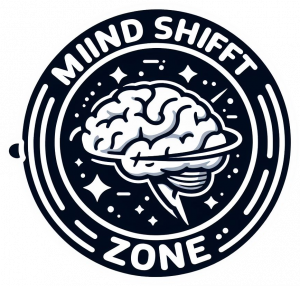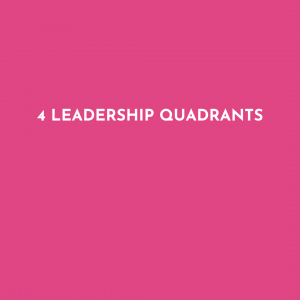Susan Kilty changed her career from working within the field of education to a career focused on digital marketing. She is sharing with us what she finds to be the top three challenges of a career change and how to overcome them
Are you bored in your current job? Unsatisfied and itching for something different? Have no idea on how to embark on a career change? Based on my own experiences, this blog will explain how you can achieve change, and find a career to fall in love with. Like Nelson Mandela said, “it always seems impossible until it’s done.”
For context, here is some background of my work experience. I was offered a shiny new job abroad while in my final year of university. Unrelated to the courses I studied, the job came with a fat paycheck and plenty of perks strategically designed to keep me tethered to the post.
I enthusiastically jumped on board only to shortly after become aware that something was missing. I wasn’t satisfied. I was always bored. I quickly realised that I would never reach my potential here. Although I was miserable, I did not know how to break the tedious cycle I now found myself in. One year at the company turned into four. I needed to get out, but how?
The good news is that I eventually managed to break free. It isn’t an easy journey, but with an open mind and a little courage, I managed to reach the finish line.
Whether you are a young professional like myself who didn’t know what to expect from your first job, or a well-established veteran in your industry, changing careers is intimidating. Next we will go over some of the challenges that come with career change.
Challenges you may face with a career change:
1. Lack of self-confidence
While working for that company, there were signs everywhere telling me that I needed to get out: I was embarrassed to talk about my work; ashamed about how my colleagues and I were treated; feeling frustrated that none of us ever did anything about our situations for fear that I’d get fired, and terrified that I would reach retirement age without having enjoyed a fulfilling career of work that made me proud.
I was completely uninspired by the meaningless work. At the same time, I felt stuck. I knew I needed to make a career change, but I had no idea where to start. My self-confidence had taken a hit, and I couldn’t figure out what my options were.
In hindsight, my view of the working world was a little obscured. After all, this being my first full-time job, my knowledge of other industries was pretty limited. My lack of experience in the working world became a distinct disadvantage.
And of course, other elements came into play: would I be able to earn the same salary elsewhere? Would I need to downsize my lifestyle? What would friends and family say? What if I quit and ended up on social welfare? These are all my obstacles – created and curated by none other than myself. The result is that I was held back from a career change because I was afraid and uninformed.
It can be difficult to change careers when you yourself don’t believe that it is possible. I wasn’t confident that my skills, and I didn’t have much of a network to open up other opportunities, so I was hesitant to leave that situation behind.
Self-confidence is a common barrier in changing careers because why would you take a risk when you are not confident that there will be a reward? Self-confidence doesn’t just affect how we feel about the daunting idea of changing careers, but it affects how we feel about the work we currently do. I was in a job where I wasn’t appreciated or fulfilled, and it made me discouraged. I often thought about moving into a different job, where I had no skills or experience, and feeling even more disappointed.
2. The fear of uncertainty
I used to come home from work and procrastinate rather than work on a plan of action. It is an easier alternative. When I wasn’t procrastinating, I would be overthinking and analysing my situation – a lot of thinking with very little doing.
In the hopes of having an awesome “lightbulb” moment, I completed a bunch of personality tests and online career guidance assessments. I read articles on business coaching, researched how to find a career coach, and listened to motivational podcasts by life coaches. I scrolled through social media, checking out what connections were up to and researched to see how I could upskill to get into doing similar work.
I couldn’t leave my job because I didn’t know what would come next.
Uncertainty will always be a barrier. Even if you are starting in a job that is perfect for you, there is still an amount of uncertainty that takes courage to overcome. Walking into a new job should be exciting, but a little bit of angst is totally normal, too. The most difficult part is taking that one step that will put plans into action, and turning the analysis into initiative.
I learned that when taking a big step forward in life such as a career change, a certain amount of fear is good. But as Robin Arzon, a former lawyer turned motivational fitness instructor says, “you have to want it more than you fear it.”
3. Lack of direction
I was an educator and a mentor: paid to teach, to solve problems, to coach individuals to realising their potential and developing into human beings with a zest for life. Yet, I couldn’t figure out what my own calling was. The irony of it still gets to me.
Since job searching alone didn’t pay off, I got in contact with recruitment agencies. I wanted a career change, but I was unsure what path is right for me. Since I didn’t have a clear idea of what I wanted to do, the recruiters very quickly lost interest in helping me. As a potential job seeker unsure of which career path to pursue, I had become a waste of time for them.
Nevertheless, I scrolled through every vacancy on all the job sites. I applied to everything and anything thinking that by doing this, I might figure out what I wanted to do. In the process, I just made myself more miserable by repeatedly seeing that I didn’t have the relevant skills or experience for the jobs advertised. Rejection became a standard outcome and my sense of hopelessness increased. This lowered my self-confidence even more. I knew I needed to upskill, but how could I if I didn’t know what I wanted to do?
How I overcame the challenges related to a career change, and you can too.
Here are possible solutions to those three challenges:
1. Don’t do it alone.
I was passive in my previous job. I was exhausted by the thought of having to browse through new career options. I wanted a change, but I didn’t know how to go about it, and the thought of risking my current job security only terrified me further.
I was comfortably uncomfortable.
I decided I needed to let people in to help me figure things out, and this prompted me to reach out to colleagues, family and friends. I spoke to my colleagues; I spoke to trusted contacts who have experience from similar situations. Having a support system is a huge help in changing careers. Undoubtedly, you are not going to get every job that you apply for. Rejection is never easy, so it helps to have people to lean on when you feel like you want to give up.
Additionally, the act alone of talking to people and letting them know you and your situation can create opportunities. Members of my support system who are older and more established in their careers, even my parents and their friends, helped guide me and give me a sense of direction. They also weren’t afraid to reach out to people who they knew to ask for advice.
And the outcome? New connections, new ideas, and most of all, – accountability. This got the ball rolling. Realize that you are responsible for yourself- if you want a change, then you have to be the one to make a change. Family, friends, colleagues, coaches, and other members of the support system can open so many doors, but you have to be willing to walk through the door to the other side and take the opportunities that arise.
Switching careers takes time, and it consists of plenty of ups and downs. But, it’s how you approach it (and who you approach) that makes all the difference. A problem shared is a problem halved. Talk to people – you never know where it may lead you.
2. To create change, you need to act on it.
“Instead of thinking of the repercussions of action, you should also be asking yourself, ‘what are the costs of inaction?” – Tim Ferriss.
In my journey of changing career, it took me four long years to admit (out loud and to those around me) that my job wasn’t the right fit for me and in an attempt to do the “mature” thing, I failed to prioritise my happiness in my work and personal life.
I don’t want you to have to wait that long to make the choice of a career change and to act on it. Don’t have analysis paralysis. It’s better to make a decision and fine-tune your course along the way.
If you move from analysing to acting, things will start to change for you!
Here are some things that I “acted” on to create change:
Career education
I signed up to do a course in digital marketing. It is something I thought would be relevant to have on my CV as the whole world is turning digital. It’s a great course to have which in turn allowed me to open my mind to a whole world of opportunities that I didn’t think or know were available to me.
The internet is a glorious thing. There are hundreds of free or inexpensive online courses through platforms like Udemy, The Forage, LinkedIn or different universities. These courses give you a chance to experiment with different areas you might like, or upskill in a field that you already know you want to pursue. It also gives you an idea of what you might not want to do.
Job Shadowing
I did job shadowing. I started with my brother who works at two jobs – a music producer and the owner of an Irish gin business. It is nice to get a glimpse of worlds different from the one I chose – a glimpse of what could be. I did the same with the parent of a friend who works as an interior designer for palaces in the Middle East. All equally fascinating careers, but not where I wanted to end up.
Nonetheless, I made up my mind to change my career and seek out a new fulfilling job for myself. Job shadowing sparked ideas and excitement, which helped me figure out aspects of a job that really interested me. It put me in a position to strike off career options, and list job attributes that work for me. It also gave me an idea of what I didn’t like. Suddenly I felt empowered – like I was finally getting somewhere.
Reach out to those who are supporting you and ask if you can shadow with them for a day, or learn about other roles at their company. This is an easy way to gain exposure to many different industries and meet others who may be able to help you.
…
I am still on a journey of discovery, and if there’s one thing I’ve learned along the way, it is that “taking action precedes clarity” – not the other way around.
3. Look for people, not jobs.
“Communication – the human connection – is the key to personal and career success.” – Paul J Meyer.
The best place to start when you’ve made up your mind to pursue a career change is networking. Connecting with people face-to-face allows you to present yourself in its entirety, not just the version of you as portrayed in an inanimate CV. In this age of digital communication, LinkedIn is a great way to make connections virtually, if face-to-face communication isn’t an option.
Don’t get me wrong. There were plenty of dead ends, but it led me to a role in a field I previously didn’t even know existed.
Having a support system is a great place to start. Reach out to connections of friends, or talk to that person you always see at the gym, or start a conversation with the guy sitting next to you on a plane. It sounds clichè, but much of finding a career is about who you know. If it is a dead end, who cares? You have nothing to lose simply by putting yourself out there.
…
It’s not easy to make a career change. Take it from someone who’s been down that road. But it is possible.
It is a life choice, not just a career choice. It’s about how you feel when you wake up every morning that affects your health and your relationships. Ultimately, it’s about the impact you make on the world through being alive in what you do.
Do you need help to make that career change?
So don’t just read this article and move on. Act on it. There’s no time like the now. If you want to learn more about a career change, check out our top tips for getting started or start your own journey of discovery today and find a coach online.











